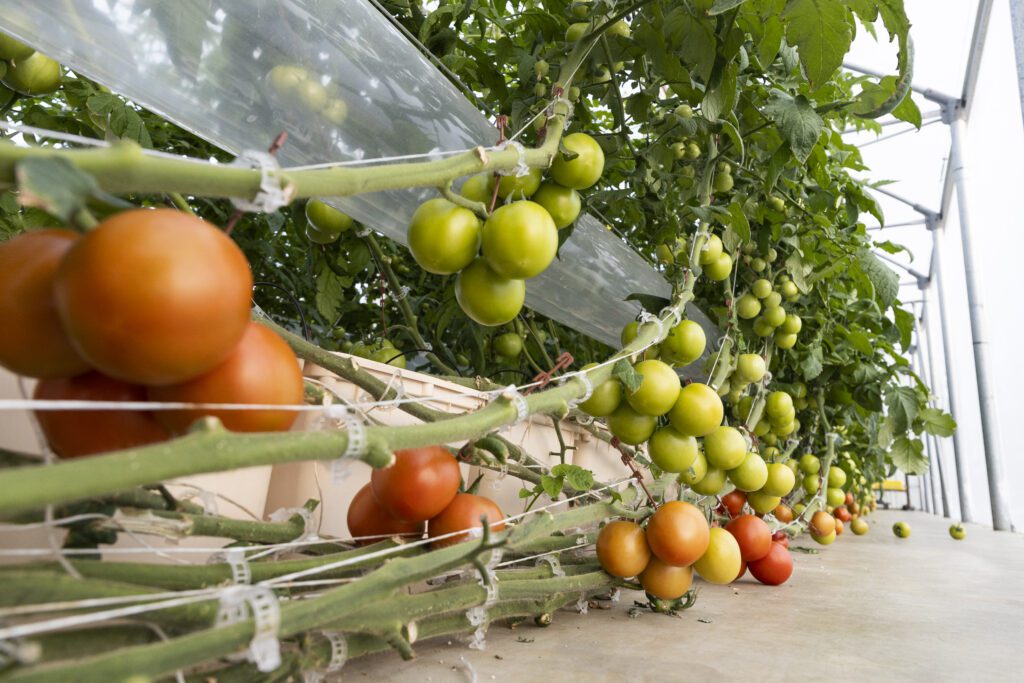by BRAD BUCK, UF/IFAS
Growers are always looking for ways to maintain or increase their yields and boost the ability of their crops to resist pests, diseases and heat brought on by climate change.
That’s particularly the case when you grow crops in a high-intensity production system, which farmers use to grow tomatoes in Florida.
Such systems require a lot of water, nutrients and chemicals to control pests and diseases. Growers typically fumigate to try to control underground pests and diseases, but that method doesn’t always work.
To explore other options, the USDA National Institute of Food and Agriculture has awarded Sarah Strauss, a UF/IFAS associate professor of soil, water, and ecosystem sciences, a $700,000 federal grant to study ways to increase soil productivity.
“The question we’re asking is, ‘How do we make this high-intensity crop production system more efficient?’” Strauss said. “How can we enhance or improve the soil to reduce disease and pest pressure?”
Strauss and her colleagues will first study tomatoes, because they grow in abundance in Southwest Florida. She and her colleagues hope their results apply to farmers of high-intensity crops throughout the Southeast.
“We want more efficient control of these diseases and pests, which will help productivity,” said Strauss, a faculty member at the Southwest Florida Research and Education Center in Immokalee. “Hopefully, with our findings, growers will also have more control of the nutrients they use to help their crops grow. That could reduce growers’ costs. The idea is, if you have a more resilient system, ultimately a farmer doesn’t have to spend as much.”
Farmers use cover crops when the land is fallow, or bare, when cash crops are not growing. They don’t make money from cover crops. Instead, they use them to protect soil.
Among other benefits, certain cover crops, like sunnhemp, can reduce the likelihood that nematodes will harm cash crops.
“But cover crops also might change soil microbes so that crops require less fertilizer,” Strauss said. “Changing which microbes are in the soil can help keep nutrients available for plants and may protect the plants against some diseases.”

